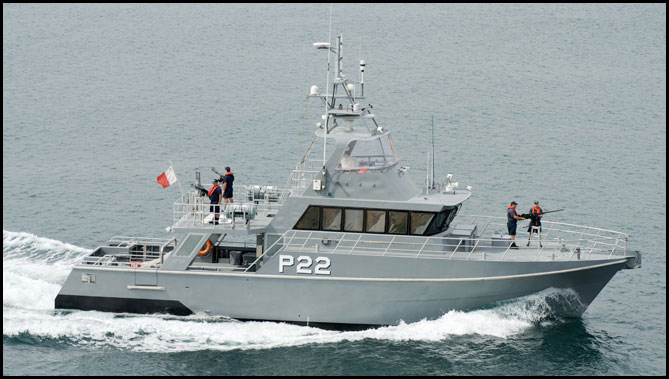As stated during a press conference held on the 13th of August 2020, the Department of Fisheries and Aquaculture (DFA) within the Ministry for Agriculture, Fisheries and Animal Rights, with the assistance of the Armed Forces of Malta (AFM), is conducting surveillance in both territorial and international waters in order to fulfil fisheries’ obligations as part of Malta’s routine fishery controls.
These routine fishery patrols are thus not exclusively target towards any particular country, but are specifically focused on FADs (Fishing Aggregated Devices) in international waters.
The surveillance and monitoring operations for the lampuki fisheries are carried out in accordance with the General Fisheries Commission for the Mediterranean (GFCM) Recommendation GFCM/43/2019/1, which states that, “It shall be prohibited for a contracting party (CPC) vessel to catch fish attracted by a Fishing Aggregated Device (FAD) that has not been set by this CPC vessel”. It is thus unlawful for Tunisian vessels to fish on FADs deployed by Maltese vessels, and vice versa.
Keeping in perspective jurisdictional competences in international law, DFA and AFM are providing the assistance possible and gathering the required evidence to be in a position to escalate matters in the appropriate fora. In addition to the action being taken by the DFA/AFM, the fishers were asked to report and provide all evidence through footage, photos and exact geographic coordinates regarding breaches of the GFCM recommendations, such as unlawful activities in their FAD lines. It must be highlighted that such issues are happening in international waters, and not in the Maltese Fisheries Management and Conservation Zone.
Malta, through a joint cooperation between various ministries, submitted substantial evidence collected through official and unofficial activities to the European Commission. Further to such submissions, the Maltese authorities have actively engaged with the European Commission and the European Fisheries Control Agency (EFCA) and discussed these unlawful activities. Meetings are being held on a weekly basis and developments are expected to be made by the European Commission with Tunisia, as well as at the level of the General Fisheries Commission for the Mediterranean. In addition, Malta, through the Ministry responsible for Foreign Affairs, is also reaching bilaterally to Tunisia with the objective of solving this issue and protecting the livelihood of Maltese fishermen.
File photo










